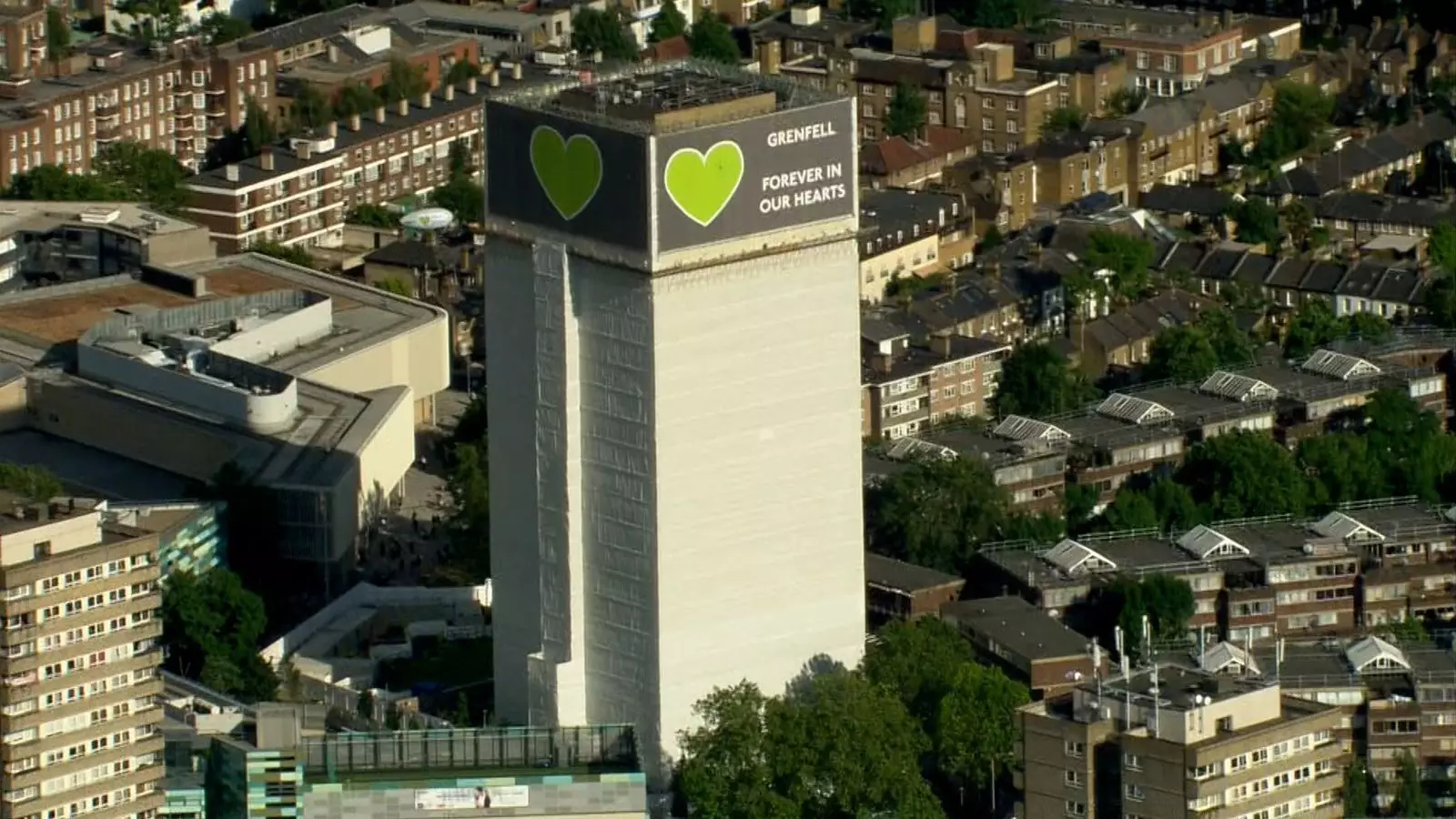The Grenfell Tower fire remains etched in the memory of a nation, marking not only a staggering loss of life but also a profound failure of governance and community engagement. Almost eight years after the tragic event, the UK government has unveiled plans to demolish the tower, a decision met with vehement opposition from bereaved families and survivors who feel their voices are being disregarded. Grenfell United, a group representing these individuals, has publicly criticized the move as “disgraceful and unforgivable,” underlining a growing sentiment that the decision lacked the thoughtful consideration and empathy warranted by the situation.
At a recent meeting led by Deputy Prime Minister Angela Rayner, the absence of a clear rationale for the decision to demolish the tower was keenly felt. Attendees—a majority of whom were bereaved relatives—expressed outrage, feeling that consultations carried out within a tight four-week window were inadequate. Bereaved families, who expected their experiences and opinions to inform significant decisions about a site that holds deep emotional value, found the representative’s assertion that their views influenced the decision both perplexing and dismissive.
Rayner’s claims of commitment to prioritizing the voices of affected individuals resonate hollowly against the backdrop of palpable discontent. Many families underscored the emotional complexities tied to Grenfell Tower, once a home for their loved ones, now a site of grief and loss. The idea of demolishing the building—interpreted by some as a means to erase their memories—has emerged as a contentious topic, fueling frustration and a sense of betrayal among the grieving community.
Grenfell Tower, the site of the UK’s deadliest residential fire since World War II, was a marker of neglect and failure that transcends its physical structure. The inquiry following the disaster unveiled systemic failures, revealing that the tragedy was largely preventable had there been a commitment to appropriate safety standards. Given this context, demolishing the tower raises questions about how the government aims to balance memorialization with urban development. Engineering assessments have indicated that while the tower currently poses no immediate danger, it will deteriorate over time, leaving families grappling with the unresolved emotions tied to its presence.
This leads to further discussions: how should the memory of those who perished be honored? As the community grapples with this question, Grenfell Next of Kin—another group representing bereaved families—calls for more than just the demolition of the structure. They advocate for a comprehensive dialogue concerning what will replace the tower, thus opening a space for healing and remembrance rather than erasure.
The destructive fire has irrevocably altered the landscape of social and political dialogues around housing safety and fire regulations. Nevertheless, the issue at hand is not solely about the bricks and mortar of the tower itself but the legacy it represents for those who lost loved ones within its walls. The opportunity to reimagine urban communal spaces in a manner that honors both a tragedy and the lives lost is critical. The community’s plea for a cautious approach—one that places emphasis on engagement and remembrance—highlights the importance of involving affected individuals in conversations about future developments.
In a statement published on social media platform X, one grieving group lamented, “The lack of closure and continuous discussions brings nothing to the table except pain and further division.” This poignant reflection underscores the need for sensitive engagement that respects the intricacies of each individual’s experience.
As the government moves forward with its plans, questions linger about their true commitment to listening to the voices of the bereaved and the broader impact of their decisions. The Ministry of Housing, Communities and Local Government has acknowledged the deeply personal nature of the situation but reiterates their intention to keep the community’s voice at the forefront. However, trust has been significantly eroded due to previous experiences where community sentiments appeared to be sidelined.
In the wake of systemic failings that enabled this disaster, a deeper commitment to transparency, active listening, and genuine engagement with the community becomes paramount. The Grenfell Tower tragedy serves as a solemn reminder—a call to action for policymakers to ensure that all voices, especially those marked by loss, are not only heard but actively shape the narrative of healing and future commemoration. The legacy of Grenfell demands not only remembrance but decisive action that brings healing to a community still in mourning.


Leave a Reply